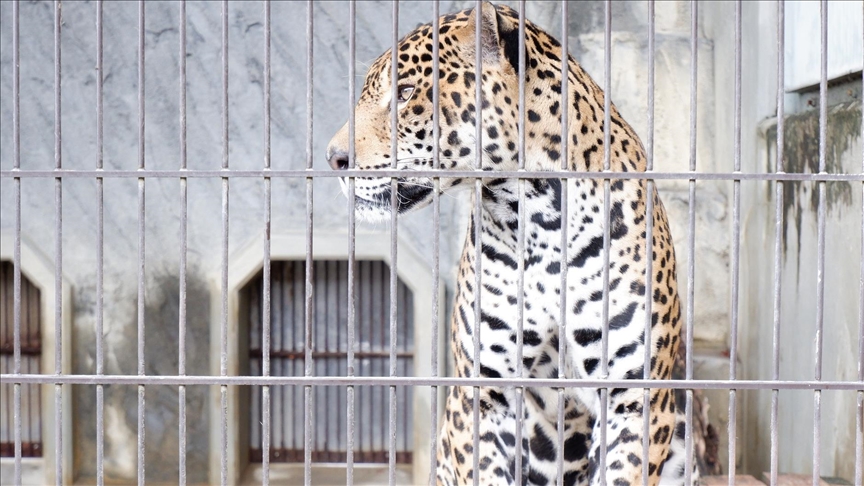
Saturday December 5, 2020
Most of trafficked cheetahs end up in Gulf countries, treated as pets

MOGADISHU, Somalia—With the world marking the International Cheetah Day on Friday, Somalia has been put on the spot for being the main habitat of cheetahs kept as pets in the Gulf countries.
Most cheetahs -- usually the cubs -- are said to have been smuggled from Kenya and Ethiopia, finding their way into Somaliland -- a self-declared breakaway territory in northern Somalia -- where they are prepared to be sent to the Gulf countries with high demand for exotic wildlife, mostly to keep them as pets.
On Oct. 20, in two separate incidents on the same day, 10 people were arrested in Somaliland in connection with the trafficking of cheetah cubs, and 10 cheetah cubs were rescued from the traffickers in the outskirts of Hargeisa -- largest city of Somaliland.Somalia’s Environment Ministry and the Cheetah Conservation Fund (CCF) have been on the forefront in saving the population of East African cheetahs threatened by the illegal wildlife trafficking.
The Somali government is working with all NGOs and wildlife authorities to stop the trade.
According to the CCF: "Approximately 300 cheetahs, mostly cubs, are smuggled out of East Africa every year, mostly through Somaliland. Many more die before being transported. Cubs, usually between three to 10 weeks [old], are taken from their mother while she is out hunting or taken in retaliation when she is perceived to be preying on livestock."
"Currently, efforts are underway to develop a permanent wildlife sanctuary in Somaliland," noted the CCF.
On Friday, the US Embassy in Mogadishu spearheaded the fight against the illegal trafficking of cheetahs, saying in a statement: ”Wildlife trafficking threatens the survival of cheetahs in the Horn of Africa. Cheetahs are found in the wild in Ethiopia and Kenya, trafficked through Somalia, and then sold on the Arabian Peninsula as pets, end Wildlife trafficking”.
Mary Wykstra, the director of Action for Cheetahs in Kenya and former Kenya director for CCF, told Anadolu Agency that the cheetah trafficking is having a toll on the East African population of cheetahs because it mainly focuses on young cheetah cubs.
“Historically during the time of the Tsars and the Caesars this [East Africa] was the traffic route of where the cheetahs were taken, how the cheetahs are moving into Somaliland we are uncertain about that,” she said.
She added: “The way that the cheetahs have to be hidden so that they are not found out as they pass through here [Kenya], by the time they get into Somaliland they are in horrific condition, so yes it is having a huge impact on the population of East African cheetahs”.
Wykstra noted that the war against cheetahs' illegal trade cannot be won unless there is a partnership among all East African countries, stressing that the countries need to “stop the middle man and the end product as well, that can’t be done by one country alone, it has to be done by collaborative effort, it can't be done by NGOs, it has to be done at a government level”.
The Somali government has been arresting cheetah smugglers before they could send the animals to the Gulf countries, especially in the past four years. Efforts have been ramped up but still smugglers find ways to send the exotic animals to be treated as pets in Gulf countries.